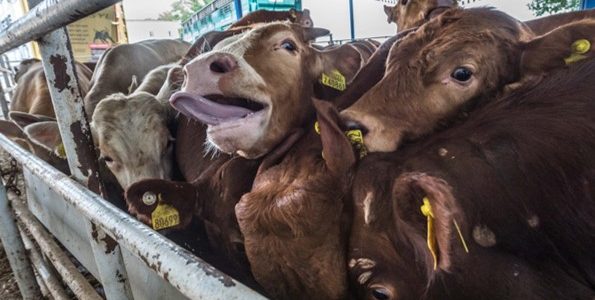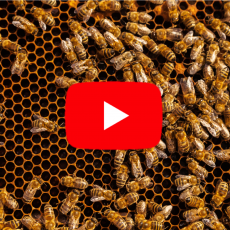
Whether you care about animal welfare or environmental ethics, lots of people have beef with the meat industry. The production of animal products contributes up to 58% of greenhouse gas emissions according to a study published in Science. It’s also the largest cause of habitat loss and wildlife extinction. One study suggests that avoiding meat and dairy is the biggest impact you can have on the planet.
But several startups see a world where you don’t have to choose between the environment and a delicious burger. Fake meat is the future according to some of these companies.
Full disclosure: As a vegetarian I really love the Impossible Burger. It tastes like what I imagine a burger to taste like. (I haven’t had one in over a decade). It’s juicy, it’s tangy, it’s not made of beans. It’s actually made out of genetically modified yeast. Scientists at Impossible foods took a bit of DNA from soybean roots and inserted it into yeast. This specific bit of DNA makes a molecule called leghemoglobin, which is similar to heme, which gives meat that bloody tangy taste.

The Impossible Burger and it’s affiliated meat replacements are going mainstream. They can be found at most burger joints in major cities and even at fast food restaurants like Burger King. The makers of Impossible Meat want to make fake meat even better than traditional meat. They hope that it’ll be easier to store since it won’t need the same kind of refrigeration, they hope they can make customized “meat”, like “soft and tender” for the elderly. The price and accessibility of Impossible Meats make this vegan alternative a crowd favorite, for now.
But they have a rival, Beyond Meat announced recently that they have a new burger patty that marblizes when it cooks. Just like a real burger it will turn from a juicy red to a nice health brown. The combination of cocoa butter, coconut oil and apple extract gives it the illusion of cooking like a burger. While Impossible Burgers are only available at certain restaurants, Beyond Meat products can be found at most grocery stores and some fast food joins like Del Taco.

Using plant protein to recreate meat protein could open up new cuisine options. Another company, Ocean Hugger Foods hopes to replace seafood with plant based products. Their current menu includes Ahimi®, a raw tuna replacement made from tomatoes. According to the CEO, the technology they use takes out the typical veggie flavors and then they can replace that with something more fishy. While their “tuna” is the only available product on the market they have in the works, Sakimi™ a salmon alternative made from carrots and Unami™ an eel replacement made from eggplant.
If genetically modified yeast or eggplant doesn’t whet your appetite, maybe a piece of steak grown in a lab would? The idea sounds like science fiction, but it’s closer than you think. In fact the industry has exploded in the past 6 years. When lab grown meats first hit the news in 2013, a single burger cost $325,000. Fast forward a few years and it now costs less than $11. If this trend continues, lab grown meat could soon become even cheaper than traditional beef. Not only will it save you money but it could help save the environment. One 2018 report suggests that it could reduce greenhouse gas emissions by up to 87%. And they could even be healthier, since they can be made without the use of antibiotics and growth hormones.
It’s about sustainability, health, efficiency, ethics”…
The process takes live animal cells and grows them in a nutrient rich environment. This produces real meat without the ethical and environmental impacts of traditional farming methods. There are some issues however, the “nutrients” are still derived from bovine fetal cells, so kind of defeats the purpose. So more research is needed, but it’s a promising path. A recent study suggests lab grown meat could replace plant based meat by 2040. One scientist, Johannes “Jan” van Dijk, working at the USC School of Pharmacy, is hoping it’s a future that’s not too far off. “It’s about sustainability, health, efficiency, ethics — all of those things in one project.”




